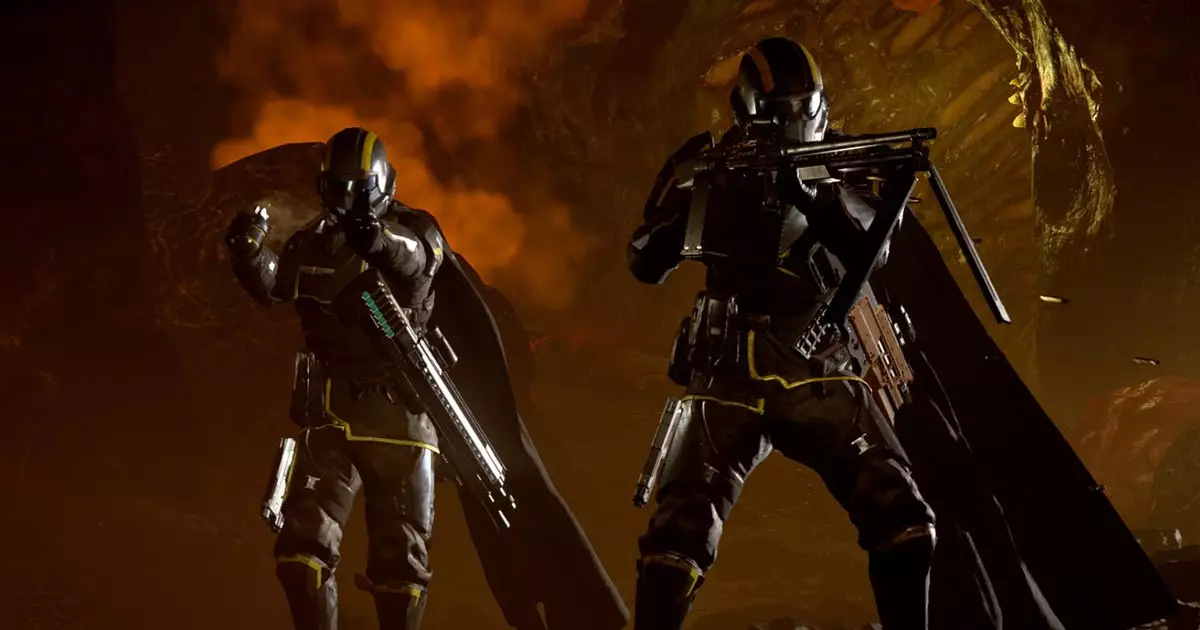In the world of gaming development, few actions speak louder about a studio’s dedication than decisively halting content deployment to address emergent issues. Arrowhead, the developer behind Helldivers 2, exemplifies this through their recent decision to temporarily remove the Rupture Strain units—specifically the aggressive Rupture Warriors—from the game. This move isn’t just about patching bugs; it’s an admission that some of their design choices, initially released, crossed a line in terms of fairness and balance. By proactively pulling the units offline for five weeks, Arrowhead demonstrates a willingness to prioritize long-term gameplay integrity over immediate content delivery.
This decision underscores a core principle: avoiding player frustration and maintaining trust trumps rushing fixes that might be subpar. Instead of patching a problem that seemed manageable at first glance, the studio acknowledged that the issue extended beyond simple tweaks and required a more comprehensive overhaul. Their approach signals responsibility—a recognition that when gameplay mechanics become overtuned and disrupt the fun, it’s better to pause, reflect, and recalibrate, rather than merely patch symptoms.
Complex Technical Challenges Drive Developer Reflection
What initially appeared to be straightforward bugs or balancing issues turned out to be more layered than they first seemed. The problem with the Rupture Warriors wasn’t just their intimidating attack but was rooted in a networking issue that affected gameplay consistency across different sessions. Arrowhead’s transparency, conveyed through community manager Katherine Baskin, highlights a responsible and honest communication ethos.
This reveals a vital truth about modern game development: technical problems are often interconnected with gameplay design. The incompatibility between network infrastructure and specific enemy behaviors created an unintended gameplay experience—one that players widely found frustrating and arguably unfair. Arrowhead’s acknowledgment of this complexity demonstrates their strategic focus on the technical underpinnings, not just superficial balancing tweaks. It’s one thing to fix a bug; it’s another to understand how underlying architecture influences game mechanics. Their admission that the fix “downed the host focusing quirk” suggests a nuanced, systems-level perspective, even if it temporarily worsened player experience.
Player-Centric Approach and Commitment to Long-Term Quality
While removing content sounds drastic, it aligns with a broader philosophy centered on quality control. Time away from problematic enemies allows Arrowhead to retool and fine-tune without rushing patchwork solutions that might create new issues. Their plan to reintroduce the Rupture Strain after five weeks illustrates a strategic patience aimed at delivering a fairer, more balanced experience.
Moreover, Arrowhead’s swift communication exemplifies accountability. The decision was justified within the context of ensuring that the final iteration is enjoyable and fair. In the competitive landscape of multiplayer shooters, reputation hinges on how developers handle setbacks. By openly addressing the challenges and not shying away from tough decisions, Arrowhead is reinforcing trust among players, which is far more valuable than uncovering a quick fix that could undermine faith in future updates.
Broader Implications for Game Development and Community Relations
What does Arrowhead’s approach teach us about the evolving responsibilities of developers? It signals a shift away from viewing patches as mere updates toward recognizing them as accountable commitments. When challenging bugs or gameplay imbalances surface, transparency and decisive action become paramount.
Furthermore, their handling of the Into the Unjust launch issues—initially plagued with performance issues and technical bugs—reveals an earnest desire to prioritize player experience over expediency. Developers who are willing to admit faults and take corrective measures position themselves as trustworthy partners in players’ gaming journeys. This attitude fosters a healthier community, one that respects the studio’s dedication to creating a polished product, even if that process involves short-term pain like enemy removal or delayed content.
Arrowhead’s recent choices reflect a broader industry trend: responsible, self-critical development that prioritizes integrity over instant gratification. Their willingness to temporarily withdraw content to address core issues not only demonstrates humility but also underscores an ambitious commitment to delivering a truly balanced and enjoyable game. Such moves, though challenging, are precisely what differentiate conscientious developers from those solely chasing quick profits or superficial fixes. Ultimately, it’s a display of integrity—one that sets a commendable example for the industry at large.

